wild yam vine
Dioscorea villosa
This perennial, climbing vine can be grown on a a trellis or fence and reaches … Continued
Plants in this group can be found within the borders of Kansas. Please note that plants from different ecoregions of the state can have very different cultural needs. For example, some native Kansas plants indigenous to western Kansas can’t handle eastern Kansas soil and rainfall.
For this reason, it’s best to select plants from the Osage Cuestas of the Central Irregular Plains Ecoregion to find those best suited to our growing conditions.
You can find Douglas County, Kansas native plants linked here.
We grow and sell plants that thrive in our local conditions, so all native Kansas plants listed in this group will perform well in Douglas County and the surrounding area.
Dioscorea villosa
This perennial, climbing vine can be grown on a a trellis or fence and reaches … Continued
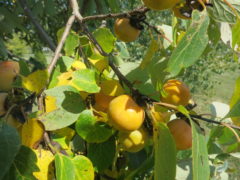
Diospyros virginiana
Rounded oval crown, grows to 35-60’ tall. Edible persimmon fruits up to 2” in diameter … Continued
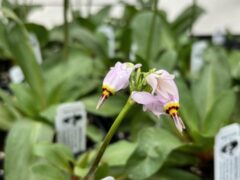
Dodecatheon meadia
Nodding blooms point upward and away from the pointed red and yellow flower center, resembling … Continued
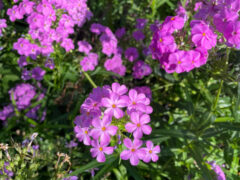
Phlox pilosa
These long-blooming perennials thrive in rocky or dry open woods, meadows, and prairies. An upright … Continued
Dryopteris marginalis
Leathery leaves are a beautiful addition to the woodland garden and can form a lovely … Continued
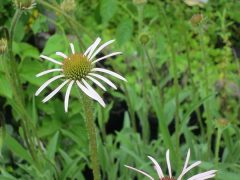
Echinacea pallida
Echinacea pallida is easily grown in average, dry to medium, well-drained soil in full sun … Continued
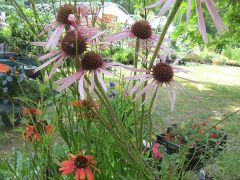
Echinacea angustifolia
This Great Plains native blooms in late spring to mid-summer. It is found growing in … Continued
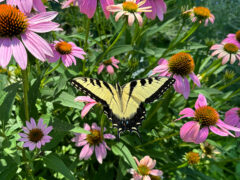
Echinacea purpurea
Showy purple flowers in July and August on plants that grow to 2-3′. Like its … Continued
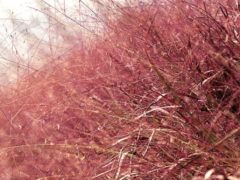
Eragrostis spectabilis
Masses of reddish-purple panicle blooms are beautiful in large sweeps.
Eragrostis trichodes
A warm-season bunchgrass native from Ohio to Nebraska and south to Louisiana and Texas. Purple-tinted … Continued
Eryngium leavenworthii
Plains native perennial that behaves more like an annual. Spiky leaves are gray-green and deeply … Continued
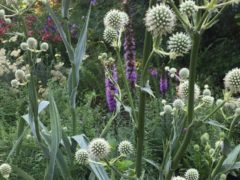
Eryngium yuccifolium
Beautiful native growing to 4′ tall with glaucus, yucca-like foliage topped with clusters of white, … Continued